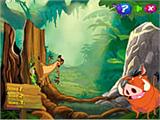Family Education Reader (I)
Education Entering Communities
Family Education Reader
January 27, 2010
Preface
Family is the cocoon that wraps life. When a child is born, we, who have become parents, feel surprise and pride in our hearts, then pour our hearts out and full of expectations to raise the child to grow up. The starting point of life's growth is the family, it's family education. In one's life journey, the most important thing is the growth of spirit, and the ultimate goal of education is to enrich people's spiritual world. Therefore, our family education should give children an eternal spiritual home.
Family is the first school for children. German educator Froebel once said: "The fate of a country is rather controlled by the hands of mothers than by those in power." This shocking sentence fully illustrates how crucial family education is for a child's growth, the progress of society, and the development of a nation! Family education, which subtly influences, will directly affect the formation of a child's moral qualities, knowledge literacy, aesthetic interest, behavioral norms, and value concepts. The perceptions and understandings formed in this invisible school are difficult to completely disappear in later life. They are deeply imprinted in the deepest part of a child's heart, affecting their entire life. In this sense, family education must not be neglected or taken lightly.
Family is the healthy harbor for a child's growth. An ancient saying goes, "If a father does not know his son, he cannot harmonize the family." This means that if parents do not understand their children, they cannot make the family harmonious. "Loving children" first requires "understanding children." Completing the supply and maintenance of clothing, food, housing, and transportation for children is merely an animal instinct; we need to enter the psychological world of children and know what their inner needs are. In this way, we can enable children to grow healthily. The educational methods used by parents to cultivate children determine their future. Therefore, from a certain perspective, the competition among children now is the competition among parents today. To let children achieve true success, it depends on subsequent efforts and correct guidance from parents.
For parents, how to teach children? What content should be taught to children? These questions have always been of concern to parents. In order to help parents educate their children well, we have compiled the "Education Entering Communities - Family Education Reader" based on relevant materials for use by parent schools of primary and secondary schools. This reader divides children aged 6-14 into three age groups, starting with the most common main issues in educating children at each age group, teaching parents some methods to educate their children.
Children cannot live forever under our care and will eventually face life independently. As parents, the best love we can give our children is not letting them run wild or leaving them with immense wealth, but giving them the best education. The summary of family education experience selected in this book is rich and detailed, containing profound implications. Carefully reading it, parents will surely benefit greatly.
As parents, we cannot choose our children, but we can choose the methods to educate them.
Education Entering Communities - Family Education Reader
6-8 Years Old Section
First, Is Your Child Ready for School?
Your child is going to elementary school, and we, as parents, feel joy inside. We prepare for the child's entry into school. Some prepare a new backpack and buy a pencil case; some make a beautiful piece of clothing and buy new shoes; others want to take a photo and make a memory... Of course, these things are necessary, but they are not enough. To help the child smoothly transition into elementary school life, there are many more things we need to do.
1. Carefully Understand the Child's Changes
Entering elementary school from kindergarten is a turning point in life. In kindergarten, they mainly play games, while in elementary school, they focus on reading and studying. In elementary school, they systematically learn cultural knowledge, consciously follow collective discipline, and the schedule is different. For the child, it is undoubtedly entering a new world. Adapting to this new environment allows the child to go through a process. Initially, children may not adapt to elementary school mainly in terms of physical health, academics, psychology, and interpersonal relationships, with significant individual differences. Some adapt within a few days, while others may take an entire semester. At first, we should not just focus on academics but comprehensively care for them, even paying attention to small issues like using the toilet and drinking water at school. Therefore, cultivating adaptability before entering school is particularly important. This is a necessary lesson before entering school.
2. Fully Prepare for School Entry
(1) Schedule: To adapt to elementary school life, the family schedule should align with the school's. Adjustments should also be made in diet and daily routines. Children in kindergarten usually nap until three o'clock and have snacks twice a day, but in elementary school, it is different. Parents need to grasp the child's daily school start and end times and arrange the child's schedule accordingly. Young children often find it hard to sit still and easily get distracted. Parents should help the child focus by telling vivid stories, sparking interest in learning, making them willing to sit down and study. Start with ten minutes, fifteen minutes, then gradually increase to twenty minutes or half an hour.
(2) Learning Supplies: Choosing appropriate stationery for the child is very important. Do not select expensive or overly toy-like items, as they might distract the child during study. For example, pencil sharpeners come in various animal shapes, which might attract the child's attention and interfere with learning. A regular pencil case is fine, but some parents buy large ones resembling thick bound books, complete with mirrors, which are both expensive and heavy, not ideal for carrying. So, parents should not assume that expensive equals good; instead, choose practical options.
Primary school students should preferably use HB pencils with medium hardness. Although parents may buy many at once, they should give them to the child gradually. If the child's pencil case is full, they might not cherish them, using them carelessly and losing them without regret because their father bought plenty. Parents should educate the child about frugality to prevent developing wasteful habits from a young age.
(3) Psychological Preparation: Psychological preparation involves educating the child to love and look forward to school life before entering school. Let the child feel that they have grown up, are now primary school students, and should demand themselves accordingly, igniting the honor and pride of being a student. Inform the child that in the primary stage, academic requirements are higher, and more knowledge is learned compared to kindergarten, although it has a certain level of difficulty, it is not insurmountable. With effort and perseverance, jumping a little higher, one can pick the fruit.
Do not teach the child the first-grade textbook in advance due to fear of falling behind, as this might make them feel uninterested since everything seems familiar, leading to lack of concentration in class. This is very detrimental to forming good study habits. Also, do not equate high scores with a good child or low scores with failure. Under such guidance, parents might increase homework burdening the child, believing only strict pressure leads to perfect scores. Not all children have equal abilities; one child might easily achieve "full marks," while another achieving 60 points is already a great accomplishment. Parents should certainly value academic performance but not solely focus on scores. Acknowledge differences and avoid forcing children to do what they cannot achieve. Otherwise, over time, the child might see studying as a hardship.
Second, What Good Study Habits Should Be Cultivated Once School Starts?
Educators say: Good habits are like moral capital stored in the nervous system, which continuously appreciates, allowing one to enjoy its dividends throughout life. Bad habits, however, are debts that torment and paralyze the best initiatives, potentially leading to moral bankruptcy. Clearly, habits are crucial. The beginning of schooling is the best time to cultivate good habits, so we should pay more attention to habit formation.
Good study habits stem from good living habits. Thus, if a child already has good living habits upon starting school, maintain them; if not, focus on cultivating them. With good living habits, fostering good study habits becomes easier. Here are some key study habits to develop early:
1. Living a Regular Life: Complete assigned tasks within specified times. Parents should let the child know what they should do at specific times, creating a time orientation. For instance, waking up early and sleeping early, returning home to do homework after school before playing, preparing the next day’s items and packing them in the bag. This way, the child can arrange content appropriately within a set timeframe, focusing attentively and easily forming habits of doing things orderly, without delay or procrastination.
2. Actively Recognizing Characters: For most first-graders, the biggest challenge in learning is recognizing characters, yet they have a strong desire to do so. There are many opportunities to recognize characters in daily life. By being mindful, parents can guide children to recognize characters anytime, anywhere. Signs on roads, store names, item labels at home, product packaging, goods tags in stores, subtitles on TV… During outings, chats, walks, or shopping, parents can guide children to unconsciously recognize characters, providing diverse contexts that stimulate their desire to recognize characters.
3. Loving Reading: When a child shows a desire to read, seize the moment and provide suitable reading materials such as nursery rhymes, folk songs, fairy tales, and stories. Choose books with short passages and rich childlike fun, initially with large pictures and small text for easy reading. Before the child develops a strong interest in books, parents should accompany them in reading, making reading interesting and fostering intimacy through shared experiences. This turns "reading" into "pleasurable reading."
4. Diligently Observing: People understand the world by observing. Although all children are naturally curious about their surroundings, this curiosity may diminish over time if not guided. How to maintain and enhance a child's observation interest? First, utilize every possible opportunity to bring the child into nature, close to flowers, trees, birds, animals, insects. Second, jointly cultivate some easy-to-care-for plants and animals like turtles or cacti, adjusting according to seasonal changes. Most importantly, observe while thinking, comparing, and communicating. Use a dedicated notebook to record observations, aiding in habit formation.
5. Writing Seriously: Despite the growing popularity of computers, some believe handwriting quality no longer matters, which is incorrect. Hard penmanship remains an essential skill for conveying information and knowledge in daily life and is one of the qualities of an excellent person. To help children form serious writing habits, parents should emphasize posture and grip while setting writing standards. Carefully observe the structure and position of each stroke in grid paper, write diligently, and remember: picking up the pen is practicing calligraphy. Maintain neatness in homework. Additionally, since children are easily influenced by their environment, keep desks clean and organized to reduce errors caused by distraction.
6. Self-Checking Homework: After completing homework, parents should help children form the habit of self-checking. For newly enrolled children, parents can check together, teaching methods step-by-step. Gradually, let the child check independently while parents spot-check. Negotiate a reward-punishment system to motivate the child to check for mistakes and correct them promptly, forming a habit.
Third, What to Do When a Child Argues with Playmates (Feels Wronged)?
One of the hardest things for parents is discovering their child has been bullied or wronged when they are not around. While feeling sympathetic and angry, what should we do?
First, ascertain the truth. Is your child the victim? Are they truly wronged? Unfortunately, children often hesitate to disclose such situations voluntarily.
Second, when understanding the child was bullied or wronged, they expect sympathy and support, wanting unconditional loyalty from their parents. At this moment, parents must not hastily side with the "enemy," even if it is a teacher or the parents themselves. If a child tells their parents they were punished for talking in class, parents should not immediately criticize: "Why did you talk in class? It's no wonder the teacher punished you."
In reality, the child has already learned their lesson; they merely seek sympathy and comfort from their parents. Parents should first say, "I know this embarrassed you; standing up is uncomfortable for anyone." This establishes emotional connection, followed by guidance on avoiding similar situations. The child's distress dissipates, and the educational purpose is achieved.
Generally, bullying experienced by children includes being pushed by peers. Without severe harm, parents need not overreact or encourage retaliation. Such incidents present opportunities for timely guidance, helping children understand the impact of such behavior, disliked by everyone. Peers should unite and interact amicably. From nurturing love, minimize animosity between people and teach children tolerance.
Upon confirming the child was indeed bullied, remain calm and rational. Specific responses include:
1. Informing the School or Teacher: Parents should inform the child's teacher or principal about the incident. Ask the child if they prefer informing the teacher themselves or having the parents do so. Usually, let the child handle it. Trust that the teacher will resolve the issue effectively. Remember, besides biological parents, teachers are the most invested in a child's growth and success.
When meeting the teacher at school, ideally go alone first for a private discussion. Avoid discussing in front of the child to facilitate calm analysis of the fight or grievance reasons and collaboratively devise solutions to prevent conflicts among classmates.
2. Teaching the Child to Face Aggressors: Encourage the child to confront the bully verbally. Have them express how the bully's actions made them feel and demand cessation of aggressive behavior. Some aggressors, faced with challenges, might stop their inappropriate actions. Parents hope children resist and defend themselves against bullying to avoid developing timid personalities. However, most parents realize retaliatory education does not address fundamental issues. Child fights are typically temporary and symbolic, lacking principle-based hostility. Today's quarrels turn into tomorrow's friendships as children adjust and learn interaction skills. Teaching children to solve problems through physical confrontation risks escalating disputes and causing greater harm.
3. Encouraging the Child to Defend Their Rights: Many children are inherently timid and passive in social interactions, often becoming targets of bullying. Parents should clearly tell the child that others bullying them is wrong, and their avoidance is also incorrect. Why target them specifically if they are "easy to bully"? Allowing such behavior once invites repetition; measures must be taken to stop it. Encourage the child to resist bullying. Parents should thoroughly understand the situation, distinguishing right from wrong, affirming the child's reasonable actions, especially for weaker personalities where saying "no" demonstrates bravery. A girl named Honghong in first grade refused to erase her answers despite pressure from classmates. Upon returning home, she anxiously asked her parents, "Was I right?" Previously criticized for not maintaining unity with classmates, this time the parents affirmed her actions. This approach advocates balanced resistance and courtesy in interpersonal conflicts.
Fourth, How to Play with Your Child?
Life revolves around play, and generally speaking, no child dislikes playing what they love, nor does any child fail to fully engage when playing something they enjoy. As long as play is appropriate and not solely for entertainment, it can inspire children's enthusiasm and allow them to showcase their talents and potential. A famous American saying goes: "Only reading, no playing, makes your child go dumb," highlighting the same idea. A child struggling academically should still have opportunities to excel, enabling their abilities to shine. Recognition from peers enhances their motivation to study.
Renowned Chinese educator Tao Xingzhi emphasized liberating children's eyes, minds, hands, mouths, time, and space, returning initiative to them, encouraging active play, and applying the same initiative to life and learning. In today's era of comprehensive knowledge, diversity requires coordinating multiple sensory organs, not only in classrooms but also in life, society, and experiences, acquiring knowledge actively, positively, and comprehensively.
So, how should parents play with their children and educate them through games?
1. Understanding the Relationship Between Play and Learning
An educational expert once said, "Playing is learning, and learning is playing." Indeed, for children, playing is the happiest activity, and they learn while playing. Playing becomes a mode of learning, exercising limbs, developing actions, enhancing memory, stimulating intelligence, cultivating emotions, and understanding the world. Only by recognizing this can parents take the initiative while playing with their children. Smart parents know how to educate children during play, including when to play, when to learn, and when to combine both, balancing time and principles. This avoids excessive interference or stopping play while preventing indulgence, ensuring children adhere to principles from a young age. Parents should create conditions and spaces for play, accompanying and guiding their children.
2. Letting Children Play in Nature
On weekends or when time permits, parents can take their children into nature, allowing them to interact with natural elements and fully experience the joy nature brings. Nature provides fresh air and teaches things not found in books, offering broader perspectives beyond homes and classrooms, enhancing survival skills in the wild. Importantly, contact with nature stimulates imagination and interest in learning. Keeping children away from nature for extended periods limits their imagination, creativity, and basic survival skills. To promote healthy growth, learning ability, and creativity, parents should encourage frequent interaction with nature and play freely in it.
3. Guiding Children to Play Wisely and Cultivate Character
Play marks the beginning of wisdom and emotional development, serving as a bridge for self-discovery. During play, children uncover fascinating scientific phenomena and natural laws, gaining pleasure and experiencing growth. Parents can guide children in computer games, inventions, crafts, and farming, integrating play and learning effectively. Activities like raising small animals cultivate traits like attentiveness, patience, kindness, and empathy.
4. Discovering Talent and Interests Through Play
While playing with children, parents should observe and promptly identify their talents and interests, supporting and encouraging them. If a child excels at reciting long poems, they may possess literary talent; if they dance or hum upon hearing music, they may have musical and dance talent; if they categorize toys by color or size, they may have logical intelligence; if they enjoy imaginative play, they likely have strong observational and imaginative skills...
Parents should treat the discovery of a child's talent and interests as finding new continents, as these serve as powerful incentives before the child forms their worldview and values.
Here, it is worth noting that despite busy work schedules, parents must allocate time to share in their child's happiness and concerns. Children need parents who succeed in their careers but also those who communicate emotionally with them.
Fifth, What Should You Do When Your Child Achieves Success for the First Time?
In a class, after some time of study, why do some students consistently perform well, ranking top, while others rank bottom, unsatisfactorily?
What is the reason? They entered kindergarten, preschool, primary school, and junior high school simultaneously. The school is the same, the teachers are the same, the classes are the same, the exercises, homework, and exams are the same. Then why?
We believe the difference lies in what happens after leaving school (of course, there are intellectual differences, but reportedly, these have minimal impact on academic performance). Different learning environments at home, varying parental views on studies, and especially differing attitudes towards achievements significantly influence outcomes.
What should you do when your child achieves success for the first time? Undoubtedly, praise! Regardless of the type of child, they all have moments of achievement, strengths, and positive aspects. Praising and affirming them, even with a simple gesture of approval, encourages and empowers them to strive harder, leverage their strengths, and continually improve, ultimately achieving ideal results. Conversely, focusing on shortcomings and criticizing during moments of achievement makes the child feel incapable, hopeless, and devoid of motivation, resulting in failure and poor exam performance.
If parents can celebrate and encourage their child's first success and then set clear, specific further goals, unexpected results may occur.
Sixth, How to Make Your Child Love Books from a Young Age?
Books are the source of human knowledge, the golden key to unlocking the treasure trove of knowledge. Reading expands a child's horizons, enriches cognitive experiences, and promotes intellectual development. To foster a child's willingness to think critically, work hard, and succeed academically, they should befriend books and develop a strong interest in reading. However, some children perplex their parents because they fear studying or even dread seeing books. How to cultivate a child's interest in books?
Firstly, choosing books suitable for their age and comprehension level is crucial because



